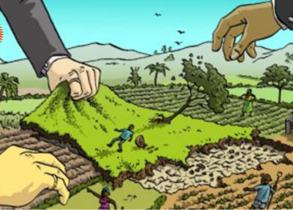Though food wastage is a global problem, India stands a chance to convert this into an opportunity, if it can address it properly. Comment.(150 words)
Approach
- Start the answer by briefly mentioning the problem of food wastage.
- Discuss the main challenge of food wastage and steps to address it.
- Conclude Suitably.
Introduction
Despite adequate food production, the UN Food and Agriculture Organisation has reported that about 190 million Indians remain undernourished. The same report highlights that around 40% of the food produced in India is either lost or wasted.
This food wastage, however, isn’t limited to one level alone but perforates through every stage; from harvesting, processing, packaging, and transporting to the end stage of consumption.
Body
Challenge of Food Wastage
- Pre-Consumption Losses: Nearly 40% of the food produced in India is wasted every year due to fragmented food systems and inefficient supply chains.
- Food Wastage At Households: There is also a significant amount of food waste generated in our homes. As per the Food Waste Index Report 2021, a staggering 50 kg of food is thrown away per person every year in Indian homes.
- Greenhouse Gases Emission: This excess food waste usually ends up in landfills, creating potent greenhouse gases which have dire environmental implications.
- Supply-Chain Management Issues: Some problems in the Indian food supply chain include inefficiency of government programs, lack of transparency in revenue generation, insufficient storage facilities, and lack of comprehensive and accurate inventories.
- Way Forward: Turning Crisis into Opportunity
- Behavioral Change: According to various reports food waste attributed to households and their irresponsible consumption patterns means that change needs to begin in our own homes.
- Food Bank Concept: Edible food should be made available every day, for free, at the latest in the last opening hour, so it can be picked up and consumed by those in need.
- International Precedents: We can look to best practices and laws in countries like France, Norway, Denmark, UK, etc., in order to check spoilage and destruction of edible food waste in India.
For example, in France, supermarkets prioritize the reduction, reuse, and recycling of extra food. - Technological Investment: It is important that technology is adopted at every stage of the supply chain to overcome this problem.
Planning in the supply chain can improve with technology, reducing transit time in shipping and logistics. In addition, multiple government initiatives are also assisting in building infrastructure for the food industry.
Conclusion
It is estimated that the value of food wastage in India is around ?92,000 crores per annum. Therefore, if the food wastage problem is addressed properly, India stands a chance to convert this into an opportunity.




